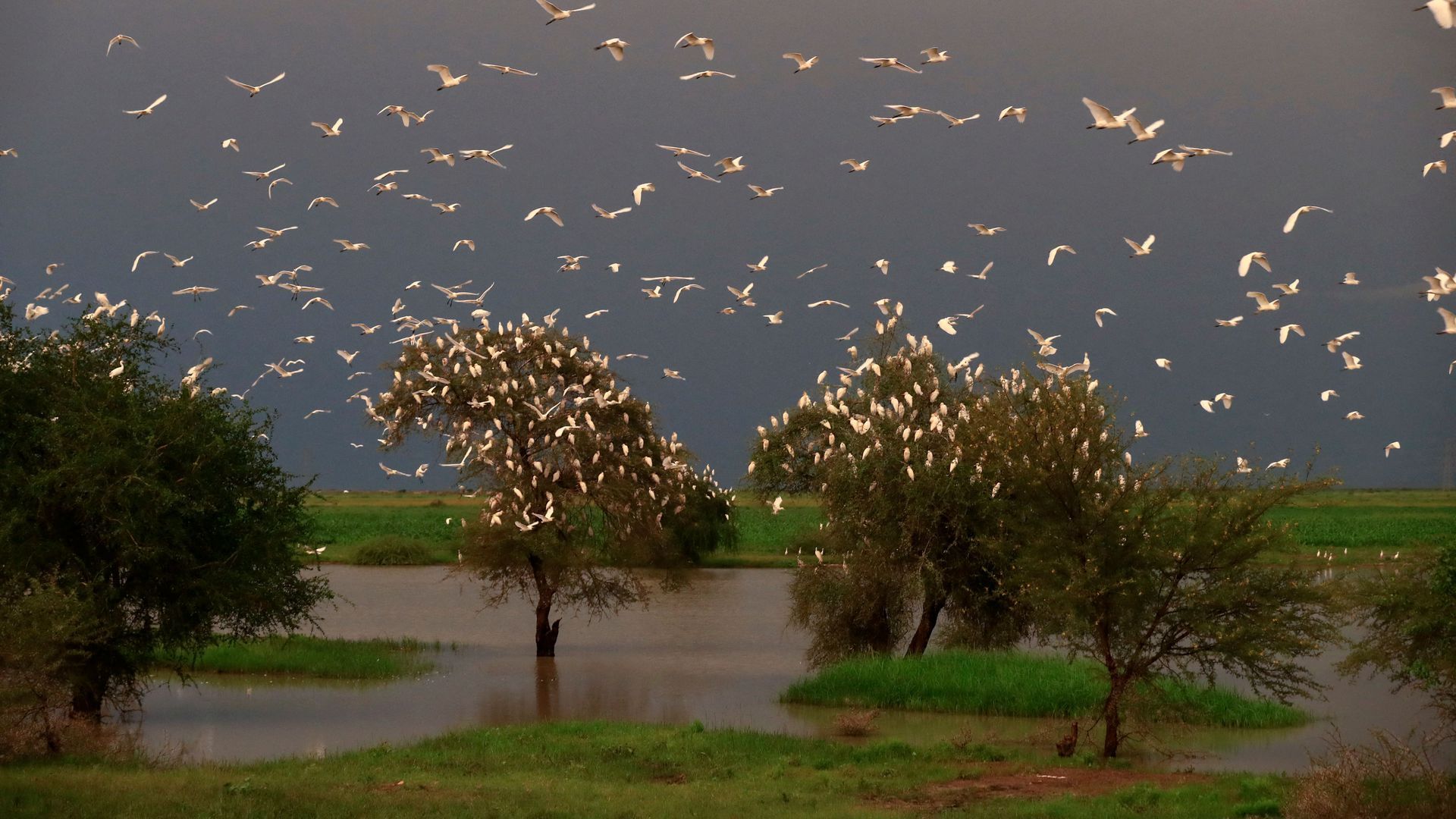Nov 1, 2021 - Energy & Climate
Many of world's poorest nations already experience acute harm from climate change
Add Axios as your preferred source to
see more of our stories on Google.

A refugee camp for displaced South Sudanese people impacted by floods near southern Sudan in September 2021. Photo: Ashraf Shazly/AFP via Getty Images
